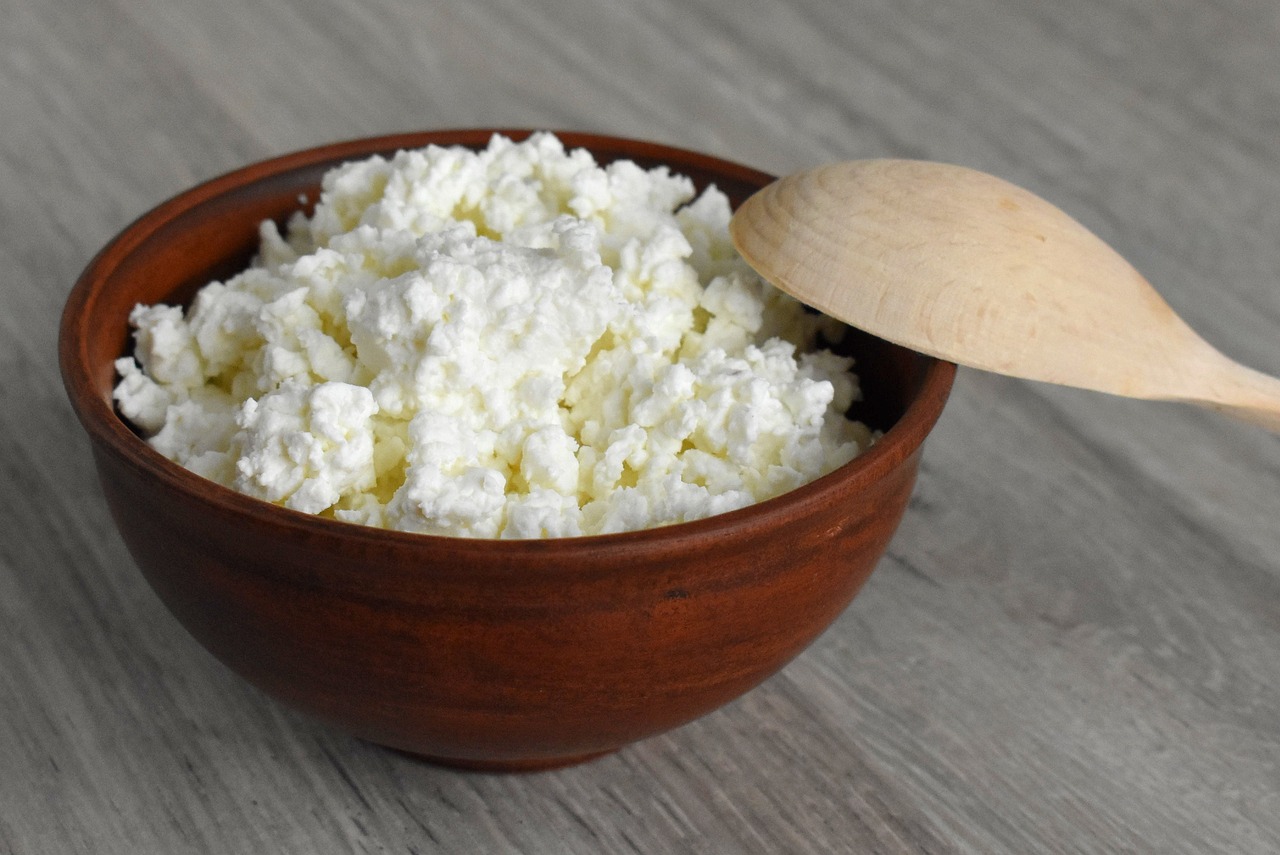Cottage Cheese Has Made A Comeback

PREMIUM CONTENT for MEMBERS ONLY
By Fiona Riddle
According to the USDA, Americans ate close to 5 pounds of cottage cheese per person per year in the 1970s. During World War I, it was touted by the government as a better alternative to animal protein in order to save meat for infantry rations. In the 1980s, however, yogurt surpassed cottage cheese in popularity. It has since made a resurgence and has gained popularity in the last year across social media as a versatile, high protein and nutrient dense ingredient for both sweet and savory recipes.
What is cottage cheese?
Cottage cheese is a cultured dairy product with a mild, tangy flavor similar in texture to ricotta.
It is made from milk and live, active cultures, also known as probiotics. The cultures feed on the sugars (lactose) in milk and convert the sugar to lactic acid. This lactic acid then “curdles” the milk, separating it into curds and whey. Curds are the milk solids while whey is the liquid leftover. After the curds are formed, they are broken up into smaller pieces, which leaves you with cottage cheese. Cottage cheese is sometimes mixed with cream, increasing the fat content.
What are its benefits?
Cottage cheese offers several potential benefits due to its nutrient profile and is high in protein thanks to its casein content. Just 1 cup of cottage cheese contains 25-30g of protein!
Adequate dietary intake of protein is important for overall health and various functions in the body. Protein helps build and repair tissues, supports muscle growth, and plays a role in hormone production. Due to its high protein content, cottage cheese can also help to promote feelings of fullness and satiety as well as help to balance blood sugar levels.
Cottage cheese contains several important nutrients such as phosphorus, which is essential for bone health and energy metabolism. Additionally, cottage cheese provides vitamins such as vitamin B12, riboflavin (vitamin B2), and pantothenic acid (vitamin B5). It is also rich in calcium, a mineral crucial for maintaining strong bones and teeth. Adequate calcium intake supports proper nerve function and muscle contraction.
Since cottage cheese is often made with live cultures, it has probiotic benefits that may support digestive health and a healthy gut microbiome as well as offer immune system benefits. Consuming fermented food daily is an excellent way to add beneficial microbes to the diet without adding in a supplement. Not all cottage cheese contains live cultures, however, so make sure to check the label for mention of live and active cultures.
What is the best kind?
When shopping for cottage cheese, make sure to read the ingredient list to ensure it contains minimal additives and preservatives. Look for options with simple ingredients like milk, salt, and live cultures. Ideally, choose organic and grass-fed options when available since the milk will be higher quality and the cows are raised more humanely.
If you are hoping to take advantage of the potential probiotic benefits of cottage cheese, look for brands that mention live and active cultures on the packaging. These varieties will contain beneficial bacteria, promoting a healthy gut microbiome.
There are also many different fat percentages to choose from, such as whole milk, reduced-fat, and low-fat options. Keep in mind that higher fat content may provide more flavor and creaminess. Ultimately choose the fat content that aligns with your dietary preferences and goals.
How can it be used?
Cottage cheese is extremely versatile and can be enjoyed in many different ways. It is often eaten with fruit as a simple snack or as part of a balanced breakfast. It can also be added to smoothies in place of, or in addition to, protein powder to increase the protein content. Many people also use it in banana pancake recipes or even blended into. If you don’t enjoy the texture of cottage cheese, try blending it and adding it to pasta sauce for a healthier, creamy sauce or blend it with herbs and lemon juice for a high protein dip for vegetables.

Fiona Riddle is a Certified Health Coach with a degree in Psychology from UCLA. She is passionate about a holistic approach to health when working with her private coaching clients. She is an avid cook, constantly creating and sharing new recipes on her Instagram (@feelgoodwithfi) to showcase simple clean home cooking.
✓ This article was reviewed and approved by Emeran Mayer, MD